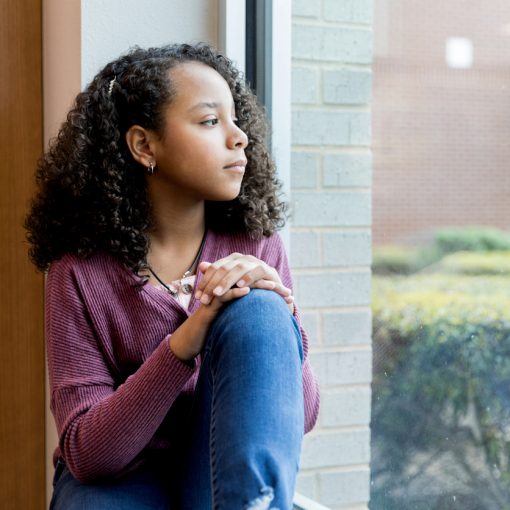We All Have a Responsibility
Children and youth develop in communities. We all have a role to play in keeping young people safe.
If you suspect a child is in imminent danger, call 911 immediately.
Suspect Abuse?
When child abuse is exposed, we often learn that people had their suspicions but were too uncertain or afraid to do anything about them. It is important to know how you can help create safer communities by recognizing the signs of abuse and understanding your responsibility to speak up. It is, in fact, your legal duty to report suspected child abuse.
Here is what to look for—and what to do—when you suspect abuse.

What to Look For
Abuse can result in functional, emotional and behavioural changes in children. It’s important to know what to look for and pay attention when a child begins to show signs that have no reasonable explanation.
Things to look for include:
- Sudden changes in behaviour or performance
- Unexplained injuries or injuries that don’t match the child’s explanation of the injuries
- Extreme behaviours like aggression, avoidance or withdrawal
- Sexual knowledge or behaviour beyond a child’s stage of development
- Children who don’t want to be at home or who run away from home
- Always hungry, sick, or not suitably dressed for the conditions or environment
Every child responds differently to abuse but these signs can be indicators that something is happening within a child’s life that needs to be explored further.
How to Respond
A child may come to a trusted adult because they believe you can help. It is common to feel panic, fear, hopelessness, disbelief, anger or sadness. It is important to set aside personal feelings and stay calm. Initial reactions are critical for the child’s path to healing.
Listen. Believe.
- Allow the child to do most of the talking. Disclosures rarely come in clear statements. If you need more understanding about the context, use an open-ended question or phrase such as “Tell me more.”
- Do not investigate for details once you suspect abuse.
- Reassure the child that telling you was the right thing to do.
- Explain to the child that you will need to tell someone who can help them. You cannot keep it a secret.
Document any comments verbatim, including those made by the child, parent, caregiver, or anyone else relevant to the situation.
Reporting Abuse
If you suspect abuse, immediately call your local police detachment or Children’s Services to flag your suspicions.
You do not need to have proof to report. But if you have a suspicion or concern, you have a duty to report. It is the law.
To Protect a child in danger, report abuse immediately
Call Family and Children’s Services Niagara
Call (905) 937-7731 or (1-888) 937-7731
Lines are open 24 hours a day, 7 days a week. You can report anonymously or give your name and ask to remain confidential. Please do NOT attempt to make a report or referral by email. Reports should be made by phone or in person.
Call Niagara Regional Police Service
Call (905) 688-4111
If you believe that your child has been a victim of sexual or physical abuse, we encourage you to contact the Niagara Regional Police Service at (905) 688-4111 or Family and Children’s Services Niagara at (905) 937-7731.
Report Online Exploitation
Report online sexual exploitation of children at Canada’s national tip line, Cybertip.ca
Your immediate action is essential to ensure the safety of a child. For more information on reporting child abuse, visit the Ontario Association of Children’s Aid Societies website.
